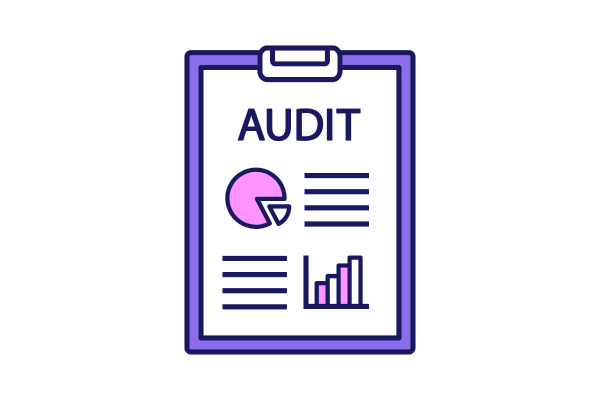Last Updated on June 4, 2025 by Becky Halls
In this comprehensive guide, website owners will gain a deep understanding of the crucial role backlinks play in SEO and how they can significantly impact their website’s visibility and search engine rankings. From exploring the different types of backlinks to learning best practices for building quality links, this article will empower readers to leverage backlinks effectively to enhance their online presence and drive organic traffic to their websites. Whether you’re new to the concept or looking to refine your backlink strategy, this guide will equip you with the knowledge and insights needed to succeed in the competitive world of backlinks and SEO.

What are Backlinks and Their Importance in SEO
Definition of backlinks
Backlinks, also known as inbound links or external links, are hyperlinks on other websites that direct users to your website. They serve as a signal to search engines that your content is valuable and worthy of citation.
Importance of backlinks in SEO
Backlinks are a crucial element of search engine optimization SEO as they act as a vote of confidence from one site to another. Google search engines consider backlinks as a signal of trust and authority, which can positively impact a website’s visibility and search engine rankings.
How backlinks impact website visibility and search engine rankings
When reputable websites link to your site, it signals to search engines that your content is credible and relevant. This can lead to improved visibility in search engine results pages (SERPs) and higher rankings for relevant keywords. Essentially, backlinks can significantly impact the organic traffic your website receives from search engines.
The Role of Backlinks in Local SEO
Backlinks are pivotal in local SEO as they help to increase a local business’s visibility in search engine results specific to a geographic area. Gaining backlinks from local directories and community websites can significantly boost local search rankings. For instance, being listed in regional business directories or receiving mentions in local news outlets sends strong signals to search engines about the local relevance of a business. Collaborating with other local businesses for joint content or events can also create quality backlinks, enhancing the authority and community connections of a business’s online presence.

Types of Backlinks
Natural backlinks
These are links that are given naturally by other websites because they find your content valuable and relevant. Natural backlinks are considered the most valuable and desirable in the eyes of search engines.
Manual or acquired backlinks
These are links that are obtained through deliberate link-building activities such as reaching out to other website owners, submitting to web directories, or paying for placements. While these can be valuable, they require effort and strategy to acquire effectively.
Editorial backlinks
These are links that are included within the body of a webpage’s content, often as a reference to a source or additional information. Editorial backlinks are typically seen as more valuable because they are placed within the context of relevant content.
Guest blogging backlinks
These are links that are acquired by contributing content to another website in exchange for a backlink. Guest blogging can be an effective way to build relationships with other websites and gain backlinks from relevant sources.

Business profile backlinks
These are links that come from business profiles on various platforms such as social media, review sites, and industry directories. While these links may be easier to obtain, they can still contribute to a website’s backlink profile.
Link Building in E-commerce
E-commerce websites face unique challenges and opportunities in link building. Establishing collaborations with influencers who can review and promote products can earn credible backlinks. Another effective strategy is to engage in affiliate marketing, where partnering sites include links to promote products, driving traffic and increasing sales. Featuring expert product reviews on reputed blogs related to the industry adds authenticity and attracts more backlinks. Additionally, writing and distributing press releases for product launches or milestones to industry-specific sites can draw links from respected news portals and niche websites, adding significant SEO value.
Quality vs. Quantity
Differentiating between high-quality and low-quality backlinks
Differentiating between high-quality and low-quality backlinks is crucial in any effective link building strategy. High-quality backlinks originate from authoritative and relevant websites that are trusted by search engines. These links are often earned through organic means, such as being referenced in reputable articles, receiving mentions from industry influencers, or being linked to from established websites within your niche. On the other hand, low-quality backlinks typically stem from spammy or irrelevant sources, such as link farms, directories with little editorial control, or websites with low domain authority. While acquiring a large quantity of backlinks may seem appealing, it’s essential to prioritize quality over quantity to ensure the long-term success of your SEO efforts.
The impact of high-quality backlinks on SEO
The impact of high-quality backlinks on SEO cannot be overstated. These links serve as strong indicators of your website’s authority, relevance, and trustworthiness to search engines like Google. When reputable websites link back to your content, it signals to search engine algorithms that your site is a valuable resource worth ranking higher in search results. As a result, websites with a robust portfolio of high-quality backlinks tend to enjoy better search engine rankings, increased organic traffic, and improved visibility in their respective industries.

Strategies for acquiring high-quality backlinks
To acquire high-quality backlinks, it’s essential to implement effective link building strategies that focus on attracting natural, relevant, and authoritative links. Creating valuable content that addresses the needs and interests of your target audience is one of the most reliable methods for earning high-quality backlinks organically. By producing informative articles, engaging infographics, insightful case studies, or entertaining videos, you can attract the attention of other websites and encourage them to link back to your content as a valuable resource for their own audience. Additionally, reaching out to industry influencers and thought leaders in your niche can open doors to valuable backlink opportunities. By establishing genuine relationships and offering mutual value, you can leverage their authority and reach to earn backlinks and increase your website’s visibility. Finally, building relationships with reputable websites and participating in online communities and forums related to your industry can also lead to valuable backlink opportunities. By engaging with other website owners, sharing valuable insights, and contributing to discussions, you can position yourself as a trusted authority within your niche and attract backlinks from relevant sources. By implementing these strategies consistently and focusing on quality over quantity, you can build a strong backlink profile that enhances your website’s SEO and drives sustainable organic traffic growth.
Measuring Backlink Quality
Understanding and measuring the quality of backlinks is essential for any effective backlinks and SEO strategy. Tools like Ahrefs, Moz, and SEMrush provide metrics such as domain authority, trust flow, and citation flow to assess backlink quality. High-quality backlinks often come from authoritative sites within the same or a related niche, with high domain ratings and relevant, context-driven content. This analysis can help identify valuable linking opportunities and ensure that backlinks contribute positively to search engine rankings. A diverse backlink profile with links from various reputable sources indicates greater credibility to search engines.
Best Practices for Building Effective Backlinks
Conducting a backlink audit
Regularly auditing your backlink profile can help identify low-quality or harmful links that may be impacting your website’s SEO negatively. By using tools like Google Search Console, Ahrefs, or Moz’s Link Explorer, you can analyze your backlink profile, identify spammy or irrelevant links, and take necessary action, such as disavowing those links, to improve your site’s overall backlink quality and SEO performance. This process ensures that your backlink profile remains healthy and aligned with Google’s guidelines for search engine optimization.

Creating valuable and shareable content
Producing high-quality content that others find valuable and want to link to can naturally attract backlinks from reputable sources, helping with your backlinks and SEO strategy. Content that is informative, engaging, and unique has a higher likelihood of being shared and linked to by other websites and bloggers within your industry. When creating content, consider incorporating keyword-rich anchor text strategically to optimize its visibility and relevance for search engines, thereby increasing the likelihood of attracting valuable backlinks.
Leveraging social media for backlink opportunities
Sharing your content on social media platforms can increase its visibility and attract potential backlink opportunities from interested parties. By actively engaging with your audience on platforms like Twitter, Facebook, LinkedIn, and Instagram, you can amplify the reach of your content and encourage others to link back to it from their own websites or social media profiles. Additionally, participating in relevant social media communities and groups within your niche can help you connect with like-minded individuals and businesses who may be interested in sharing your content with their audiences, further enhancing your backlink profile and SEO efforts.
Building relationships with influencers and industry authorities
Establishing relationships with influencers and industry authorities can lead to valuable backlink opportunities and collaborations that benefit both parties. By engaging with influencers through social media, attending industry events and conferences, and reaching out via email or direct messaging, you can build rapport and credibility within your industry. When influencers or authorities within your niche recognize the value of your content and expertise, they may naturally link back to your website or mention your brand in their own content, thereby enhancing your backlink profile and improving your search engine optimization efforts. Additionally, collaborating on joint projects, such as guest blogging, podcast interviews, or co-hosting webinars, can further strengthen your backlink profile and increase your visibility within your target audience.

Avoiding Common Backlink Mistakes
Buying cheap backlinks
One of the most prevalent and detrimental mistakes in backlink acquisition is the practice of buying cheap backlinks. While it may seem like a shortcut to improve search engine rankings quickly, buying backlinks is a risky and often frowned upon tactic by search engines. Purchased backlinks are typically low-quality and irrelevant, coming from link farms, spammy websites, or even outright blackhat SEO services. Search engines like Google have sophisticated algorithms designed to detect unnatural link patterns, and websites caught engaging in such practices can face severe penalties, including being removed from search engine results altogether. Instead of buying cheap backlinks, focus on targeted link building strategies such as creating high-quality content, reaching out to relevant websites for partnerships and collaborations, and leveraging social media and content marketing to earn natural backlinks. This approach not only improves your website’s credibility and authority but also ensures long-term success in search engine rankings.
Engaging in link schemes
Another common mistake to avoid in backlink building is engaging in link schemes. Most link schemes involve manipulative tactics aimed at artificially inflating a website’s backlink profile, often in violation of search engine guidelines. These schemes can take various forms, such as reciprocal linking, where websites agree to exchange links to artificially boost each other’s rankings, or participating in link networks that exist solely for the purpose of generating backlinks – whilst not being relevant at all. While these tactics might offer short-term gains, they pose significant risks in the long run. Search engines are adept at identifying and penalizing websites involved in link schemes, often resulting in a drastic drop in rankings or even removal from search results altogether. Instead, focus on building genuine relationships with other websites, creating valuable content that naturally attracts backlinks, and prioritizing relevance and quality over quantity in your link-building efforts. By steering clear of link schemes and adopting ethical, sustainable practices, you can build a strong, authoritative backlink profile that enhances your website’s visibility and credibility in the eyes of both users and search engines.

Overoptimizing anchor text
Overoptimizing anchor text, once a common practice in SEO strategies, has now become a red flag for search engines. Anchor text, the visible, clickable text in a hyperlink, was once heavily manipulated to include exact match keywords in an attempt to boost a page’s rankings for those keywords. However, search engines like Google have become increasingly sophisticated in detecting and penalizing such tactics. Overuse of exact match anchor text can now lead to penalties, as search engines prioritize natural, diverse link profiles. Instead, a more balanced approach, incorporating branded anchor text, generic phrases, and variations of keywords, is recommended to maintain a healthy link profile and avoid triggering search engine penalties.
Ignoring the relevance of backlink sources
Overlooking the relevance of backlink sources is a critical mistake that can undermine the effectiveness of your SEO efforts. While acquiring backlinks from a high volume of websites may seem appealing, their relevance to your own site’s niche and industry is paramount. Backlinks from unrelated or low-quality sources can not only fail to boost your search engine rankings but may also harm your site’s reputation and credibility. Search engines prioritize backlinks from authoritative and relevant sources because they serve as indicators of trust and expertise within a particular topic or industry. Therefore, it’s essential to focus on securing backlinks from websites that are contextually related to your own content and are recognized as authorities in your field. By prioritizing relevance in your backlink acquisition strategy, you not only improve your site’s SEO performance but also enhance its overall authority and trustworthiness in the eyes of both search engines and users.
Ethical Considerations in Link Building
Maintaining ethical standards in link building is key to sustaining long-term SEO success. Search engines favor websites that naturally acquire backlinks rather than those that engage in manipulative practices. This means avoiding tactics like using link farms or participating in link exchange schemes. Building genuine relationships with other websites in your industry promotes ethical backlinks. Transparent communication and fair practices add to your site’s reputation. Providing valuable content that others want to reference and link to is a straightforward way to gain ethical backlinks that positively influence search engine rankings.
Monitoring and Analyzing Backlinks and SEO Performance
Utilizing backlink analysis tools
Utilizing backlink analysis tools is essential for website owners looking to assess the effectiveness of their backlink strategies. Tools like Ahrefs Free Backlink Checker and Website Authority Checker and other backlinks databases offer valuable insights into the quantity and quality of backlinks pointing to a website. By regularly monitoring their backlink profiles with these tools, website owners can identify areas for improvement and track the impact of their backlink-building efforts over time. These tools provide valuable metrics such as domain authority, referring domains, and anchor text internal links distribution, allowing website owners to evaluate the diversity and relevance of their backlinks. Additionally, tracking the impact of backlinks on search engine rankings is crucial for measuring the success of a backlink strategy. By monitoring changes in search engine rankings and organic traffic, website owners can assess how their backlink profile influences their visibility in Google search engines. This data can help website owners identify which backlinks are driving the most significant improvements in rankings and prioritize efforts accordingly.
Using Backlink Analysis Tools for Competitive Analysis
Backlink analysis tools are not only useful for monitoring your own site but also invaluable for competitive insights. By analyzing competitors’ backlink profiles with tools like Majestic SEO or SEMrush, you can discover where their backlinks are from and identify potential opportunities for your own site. This analysis can reveal gaps in your link-building strategy and highlight successful tactics employed by competitors. Understanding the sources of competitors’ high-ranking backlinks can guide your efforts to pursue links from similar high-authority domains, improving your site’s search engine performance.
Adjusting backlink strategies based on performance data
Adjusting backlink strategies based on performance data is a fundamental aspect of effective SEO management. By analyzing performance data from tools like Ahrefs and Google Analytics, website owners can gain valuable insights into which backlink tactics are delivering the best results. For example, if certain types of anchor text backlinks are consistently driving higher rankings and traffic, website owners can focus on acquiring more of those types of backlinks in the future. Conversely, if certain backlinks are not contributing to improved rankings or traffic, website owners may need to reassess their approach and explore alternative backlink acquisition strategies. By regularly reviewing and adjusting their backlink strategies based on performance data, website owners can ensure that their SEO efforts are aligned with their goals and driving measurable results. Additionally, working with an experienced account manager SEO can provide valuable guidance and expertise in optimizing backlink strategies for maximum impact. By leveraging the insights and expertise of an account manager SEO, website owners can streamline their backlink efforts and achieve better results in search engine rankings and organic traffic.

The Future of Backlinks and SEO
The evolving role of backlinks in search engine algorithms
As search engines continue to evolve, the role of backlinks in determining website authority and relevance may change, requiring website owners to adapt their strategies accordingly. While backlinks have traditionally been a significant ranking factor, search engine algorithms are becoming increasingly sophisticated in evaluating the quality and context of backlinks. In the future, search engines may place greater emphasis on factors such as the relevance of the linking page, the authority of the linking domain, and the diversity of anchor text used in backlinks. Website owners will need to focus on acquiring high-quality backlinks from authoritative sources while ensuring that their anchor text is natural and contextually relevant to their content.
Predictions for the future of backlinks and SEO
With the rise of artificial intelligence machine learning, and automated link building tools, the landscape of backlinks and SEO may undergo significant transformations in the future. As search engines become more adept at understanding natural language and user intent, the importance of high-quality content and natural backlink profiles is likely to increase. However, advancements in automation and AI-powered tools may also lead to new challenges and opportunities in backlink acquisition and SEO. Website owners will need to stay ahead of these developments by leveraging tools like Ahrefs Website Authority Checker and Ahrefs Free Backlink Checker to monitor their backlink profiles, identify emerging trends, and adapt their strategies accordingly.
Adapting strategies for backlinks and SEO trends
Website owners should stay informed about emerging SEO trends and be prepared to adapt their backlink strategies to align with the evolving requirements of search engine algorithms. This may involve incorporating new tactics such as leveraging structured data markup to enhance search engine visibility, optimizing for voice search, and prioritizing user experience signals such as page speed and mobile-friendliness. Additionally, website owners should continue to focus on creating high-quality, valuable content that naturally attracts backlinks from authoritative sources. By staying proactive and adaptive in their approach to backlink acquisition and SEO, website owners can position themselves for success in the ever-changing digital landscape.
FAQs on Backlinks and SEO
What is a backlink in SEO?
A backlink is a hyperlink from one website to another. In SEO, it signals to search engines that your content is credible and authoritative, which can improve your rankings.
Why are backlinks important for SEO?
Backlinks act like votes of confidence. When reputable websites link to yours, it tells search engines your content is trustworthy, helping boost your visibility and ranking in search results.
How can I get high-quality backlinks?
Earn high-quality backlinks by creating valuable content, guest posting on reputable blogs, building relationships with influencers, and sharing content on social media to attract organic links.
What are bad backlinks and should I remove them?
Bad backlinks come from spammy or irrelevant sites. These can hurt your SEO. Use tools like Google Search Console or Ahrefs to find and disavow harmful links.
How do backlinks affect local SEO?
Local backlinks from directories, community sites, or local partnerships help search engines understand your geographic relevance, improving your visibility in local search results.
Do all backlinks help SEO?
No. Only relevant, high-quality backlinks from authoritative sources help SEO. Low-quality or paid links can lead to penalties from search engines like Google.



